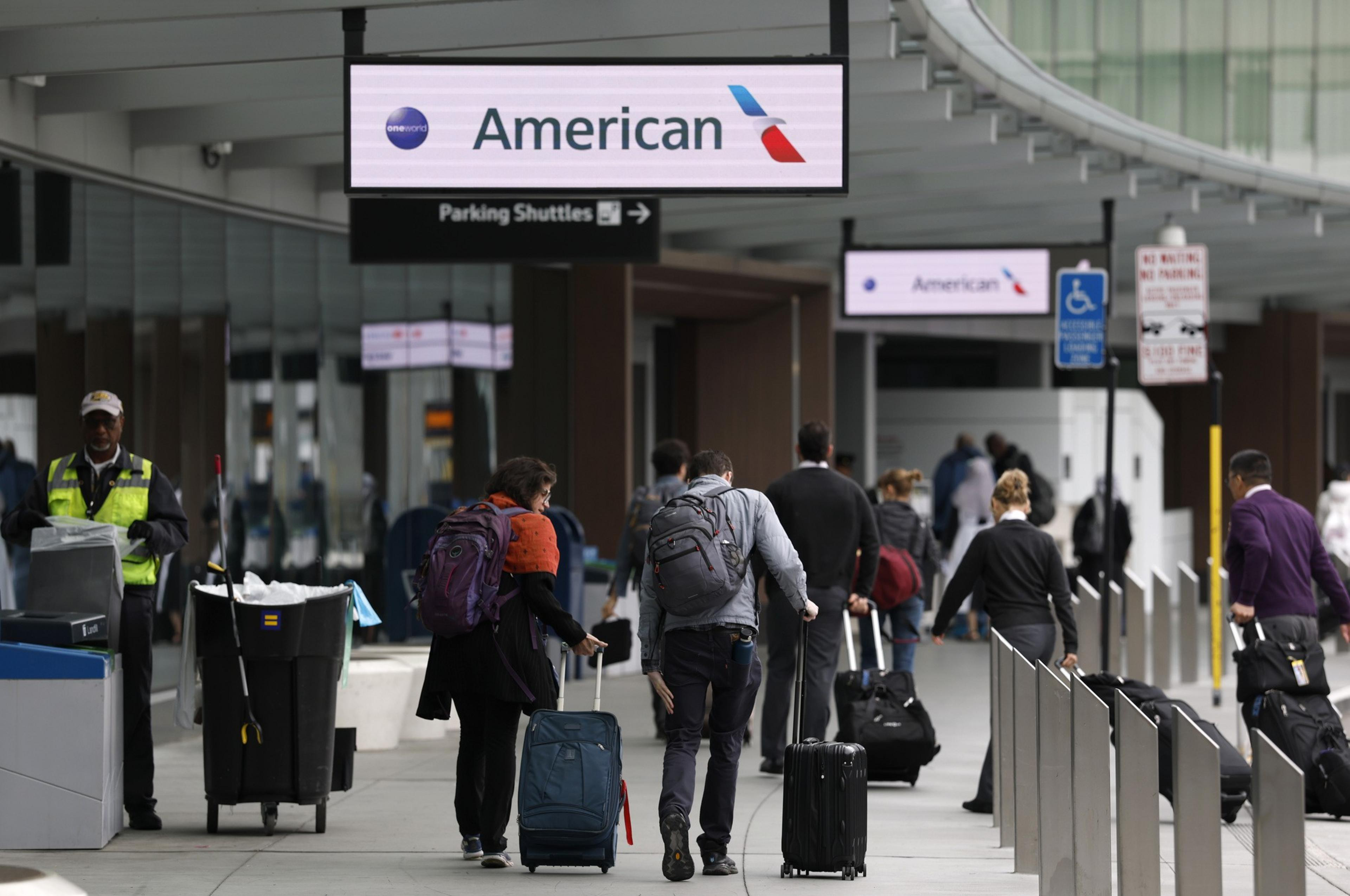The nightmare began soon after takeoff. Barbara Morgan was on a red-eye from San Francisco to Dallas, seated next to a man she didn’t know.
First, she claimed, he rubbed his arm against the side of her body, in what she described as a deliberate attempt to touch her breasts. She tried to shift away from him.
Then he put his hand on her upper thigh, according to a lawsuit filed last week in federal court. He slid it upward, fondled her genitals, then put a bag on his lap to conceal a visible erection.
Morgan immediately reported the April 2024 incident to a gate agent after the flight landed, her lawsuit says. What she didn’t know was that the alleged abuser, Cherian Abraham, 54, was accused of groping another woman in a nearly identical assault months earlier.
Furthermore, he’d go on to allegedly grope a third woman a year later on another American flight — despite the fact that the airline had been alerted about the first two incidents.
This time, federal investigators caught wind of it and in March charged (opens in new tab) Abraham of Allen, Texas, with abusive sexual contact. The federal complaint details all three alleged assaults.
Morgan’s assault “was not an isolated incident,” her attorneys wrote in the suit. “It was the direct result of a culture at American Airlines that enables sexual predators, silences survivors, and treats safety warnings as public relations problems rather than urgent threats.” Her attorneys did not respond to The Standard’s requests for comment.
Morgan is seeking damages from American Airlines and Abraham, who is a senior account director at Nokia.
“The safety of our customers and team members is our highest priority,” an American Airlines spokesperson said in a statement. “We take this matter very seriously and are working closely with law enforcement on its investigation.”
The airline has banned Abraham and will work closely with law enforcement in the case, she added. She did not respond to questions about why he hadn’t been banned after the first two incidents.
Abraham pleaded not guilty to the federal charges; court documents show he previously told investigators that the physical contact was accidental. His attorney in the criminal case did not respond to a request for comment.
American Airlines was negligent, the lawsuit claims, because flight attendants rarely walked through the cabin and didn’t respond when Morgan shouted at Abraham to “stop.” An airline agent at the gate “engaged in victim-blaming” by asking Morgan why she didn’t do more to complain about Abraham during the flight, the suit said.
Instead of contacting law enforcement, the agent told her to file a complaint online, according to Morgan. After several attempts to get a response from American, Morgan heard from an airline security representative who “shifted blame onto her for not reporting it while still in the air.”
In the suit, Morgan said she “froze” during the incident, fearing that if she raised a ruckus, it could cause Abraham to retaliate or anger other passengers if the flight were to be rerouted.
The lawsuit paints American as a company that has repeatedly failed to respond to allegations of sexual assault on its planes. Those include a 2017 incident in which a woman said she was raped (opens in new tab) by a man about whom she had previously alerted flight attendants and a 2024 incident in which a woman said a man openly masturbated (opens in new tab) next to her on a flight.
In Morgan’s case, the alleged assault violated her “bodily and sexual autonomy, stripped her of dignity, and robbed her of a basic sense of safety,” the suit says.
